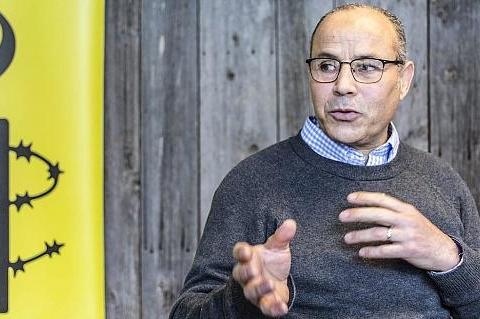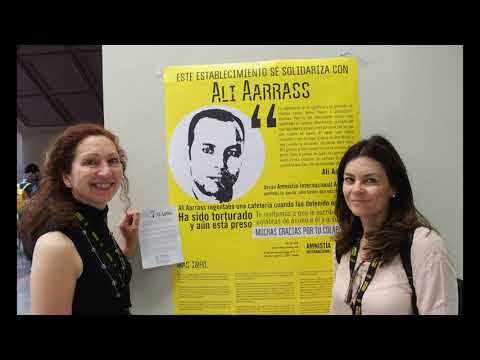The case of the Belgian-Moroccan national Ali Aarrass shines a spotlight on persistent human rights violations and the existence of torture prisons in Morocco. While the monarchy remains silent, the public deliberately looks the other way.
By Susanne Kaiser
« The main thing was there was no light, not even the tiniest ray of light, » recalls Aziz Binebine, who was forced to live for 18 years in total darkness in a tiny cell measuring no more than three metres. Heat, cold, rotting food, scorpions, the slowly advancing deformation of the body – utterly defenceless against these adversities, he nevertheless survived.
The Moroccan writer Tahar Ben Jelloun took up his story in the novel ″This Blinding Absence of Light″ published in 2001, which bore belated witness to what had been going on in Morocco’s subterranean torture chambers for twenty years. Binebine was one of six gravely ill survivors to be liberated from Tazmamart′ notorious Block B in the year 1991. The then monarch, King Hassan II, was forced to admit to the existence of secret jails such as Tazmamart – the worst prison in Morocco’s central eastern region – in the face of international pressure.
The 23 remaining detainees, imprisoned there along with Binebine in the early 1970s, would never again see the light of day. They had been simple low-ranking members of the army, officers and sergeants locked up in an act of revenge by the King after the failure of two coup attempts against his royal despotism.
« Years of lead »
Read more of this article, click HERE






